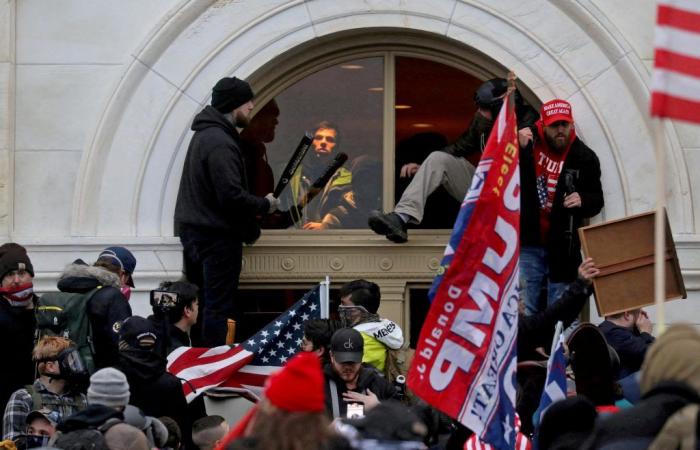The U.S. Supreme Court on Friday ruled 6-3 in favor of one of the January 6 rioters who challenged a law cited in the charges against him. The decision could upend the cases against the more than 300 people charged or convicted of obstructing an official proceeding in connection with the assault on the Capitol. Donald Trump is among that group.
According to the majority opinion written by the President of the Court, Justice John Roberts, the law in question applies only in cases where the actions of the accused undermine the integrity of physical evidence such as an email or a commercial document. Lower courts will now have to use this strict standard, with the result that many indicted people will have their charges dropped. Those who have been convicted could have their sentences reduced or overturned.
Conservative Justice Amy Coney Barrett dissented with two of the Court’s progressive justices, Elena Kagan and Sonia Sotomayor. Surprisingly, Justice Kentaji Brown Jackson joined the conservative camp in this case.
The ruling stems from a suit filed by Joseph Fischer, a former police officer indicted on six other counts. According to special prosecutor Jack Smith, the court’s decision may not have any consequences for Trump, who faces four counts related to the alleged post-election plot in Washington.
The conservative majority of the Supreme Court also buried this Friday a doctrine dating back to 1984 and called “Chevron Deference”. In doing so, it gives a long-awaited victory to right-wingers who have for decades cherished the dream of dismantling the administrative state. The doctrine takes its name from the 1984 ruling Chevron U. S. A. Inc. c. Natural Resources Defense Council, Inc. Its overthrow would not only affect the powers of the Environmental Protection Agency (EPA) but those of every agency in the federal government that seeks to protect commerce, the health or safety of Americans, among other things.
By a vote of 6 to 2 (Justice Kentaji Brown Jackson recused herself from the case), the top U.S. court thus ended the precedent established in the Chevron case that if part of the law that Congress wrote to empower a regulatory agency is ambiguous but the agency’s interpretation is reasonable, justices must defer to the agency.
Written by Justice Roberts, the opinion could have implications for a myriad of legal challenges to government regulations.
(Photo Reuters)
I like this :
I like loading…






